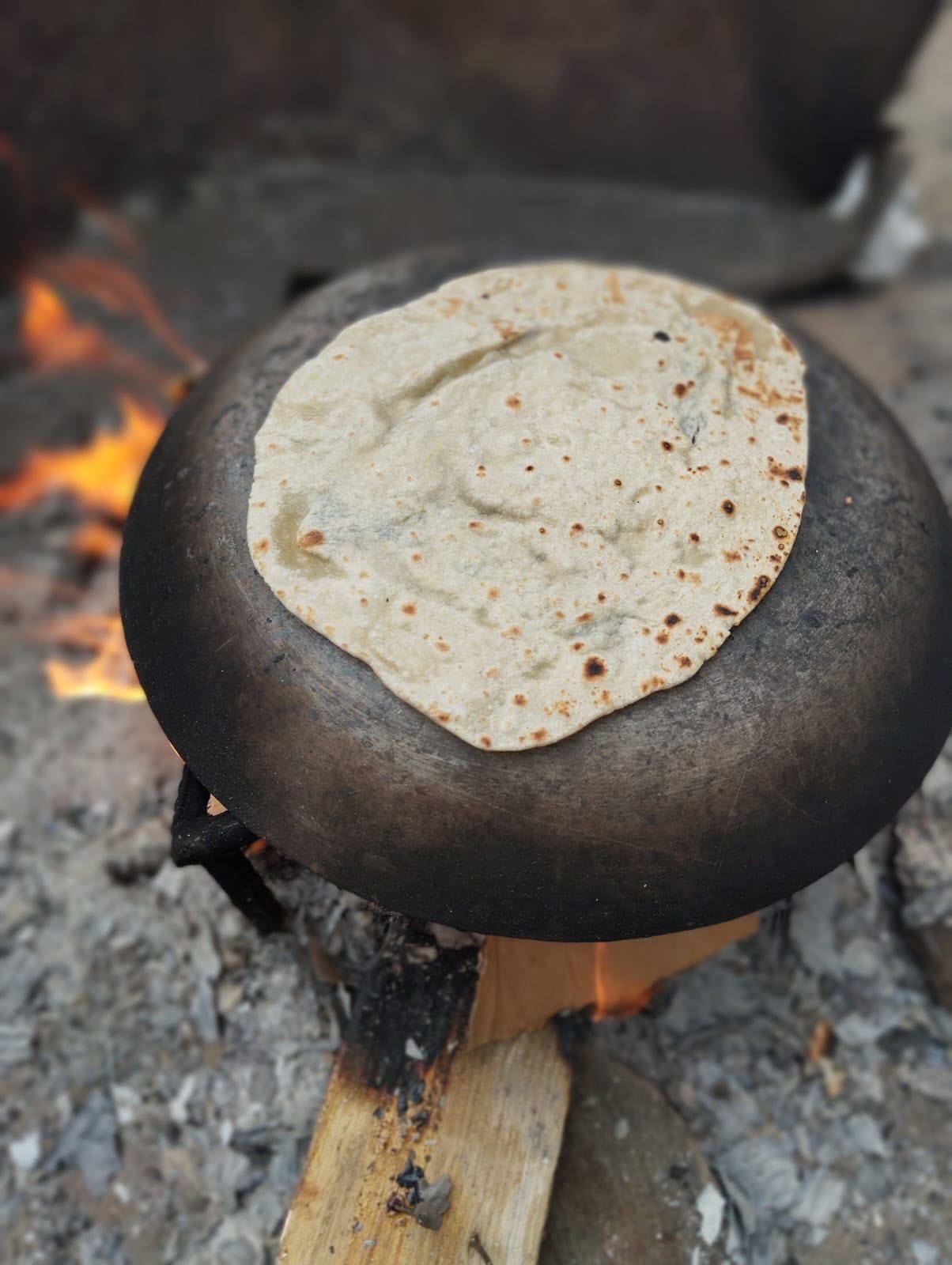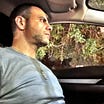Author’s Note
My first impression of Ismail was through his display photo on WhatsApp. His hand caressed a pink flower, his eyes gazing upon it. I was struck by this image of a young man’s appreciation for beauty in Gaza’s air of death. His voice was despondent, and I could immediately think of a myriad of reasons why it would be, and why it might remain so, in a place where peace feels far away.
In spite of the darkness that loomed over his family’s life, he shared moments that revealed how in touch he remained with it.
Ismail was born in the southern part of Gaza, the youngest of eleven siblings, six brothers and five sisters. His family lived in Al Zaytoun, a neighborhood in Gaza City.
Ismail does not speak of childhood in stories, but through the sequence of wars that marked it:
In 2008, he was five years old, in kindergarten, when the first war he remembers began. The teacher screamed. Children cried. The army entered Al Zaytoun, and his family walked out carrying white flags. Their home was destroyed. His father, a butcher, lost his work.
“We were never compensated for anything,” he told me. “My father broke.”
Then came:
2012 - 174 Palestinians Killed, 971 wounded
And 2014 - 2310 Palestinians killed, 10, 895 wounded
And 2021 - 256 Palestinians killed, 2000 wounded
Each war with its own shape. Each with a different kind of leaving.
But 2023, he said, was different; A war of extermination.
They were displaced ten times. Each time with fewer things, less energy, and no sense of when it might end. There was no aid. Nothing for free.
“Flour was boiled despite the rot. Sugar, once five shekels, now costs a hundred and fifty. We no longer consider it essential.”
He spoke of blockades, inflated food prices, and hoarding that worsened the already
dire conditions. He told me about a man with a hundred sacks of lemons. During the
truce, when the crossing was open, each sack sold for 500 shekels ($150 USD). Now, with borders sealed and goods scarce, they sell for 10,000 ($3000 USD).
“He made nearly a million shekels,” ($300,000 USD) Ismail said. “Just by hoarding and waiting. They have information. They know when the borders will close. So they hoard to manipulate prices.”
Meanwhile, his family lives off a few kilos of spoiled flour.
“It even smells,” he told me. “We’re really struggling to buy anything.”
It is a war not just of bombs, but of food. Of systems that turn life itself into currency.
Ismail sent me a video. A pile of flour, infested with insects. Children stood around it in confusion and disgust, watching. The adults chuckled, helplessly.
“The taste of rotten bread carries so much pain,” Ismail said. “But that’s what’s available. It’s the only option. We don’t have choices. We’re living a life we’re forced into.”
In this life, even small gestures carry weight. When asked about hope, Ismail remembered a little girl who quietly stood near him while he held a piece of chocolate.
“I don’t know how,” he said. “I felt something, and I gave it to her.”
“I’ve helped children carry water. Even when things are bad, I give. Even if it’s something small.”
The urgency of the situation intensifies in the presence of children. Their innocence is what keeps the last embers of hope from going out. It is the reminder that tomorrow can still be lived anew, even after all that has been lost.
His sister lost her husband in the war. She has a baby and a young boy. The little girl broke her leg a few weeks ago. The children are left with Ismail as a caring uncle.
He had set up a donation link, posted it, shared it, but there isn't enough to keep them going.
“I do what I can,” he said. “But there’s no engagement.”
What may be just another donation link to us is, to him, something he looks to every day for relief.
He told me about the night of the Rafah operation. For two hours, bombs and helicopters filled the sky.
“The operation happened one street over,” he said. “And I just kept thinking; I don’t want to die. There are still beautiful things I want to do.”
When I asked what had changed in him, he answered plainly.
“I forgot the beautiful life I used to take for granted. That was actually the greatest blessing. What changed is that now I can sleep anywhere. And I don’t think anything worse than what we’ve seen could happen.”
And when I asked what helped him survive emotionally, he said:
“Prayer. Hope. Remembering God’s mercy. I tell myself, after hardship comes relief.”
What dreams keep you going?
“To leave the place of war. To live quietly with my mother and sister. To return to my goal. To be someone who creates.”
What does dignity mean to you?
“To not be humiliated. To not be thrown out of my home, left craving a bite of food.”
What kind of support is most needed?
“Material support is better than moral support. It means we can eat.”
His final message:
“We are tired. Stand with us. Help us. We need everything. Don’t forget us.”
There is no resolution. No tidy ending.
A young man, stripped of the peace of life, still remembering to give, even when there is barely anything left to give.
Consider donating to Ismail’s family through the link below. Every gesture counts.
Editors Note: Every story we publish is painful. But there is something incredibly heartbreaking about Ismail’s story. It took me awhile to figure out why this story really got to me but I realized eventually that I have managed to ignore most of the men’s pleas for help.
We all want to help the people in Gaza but it is easier to pay more attention to the adorable children and infants and their mothers than it is to notice the 20-50 year old men who are also suffering.
I also found myself incredibly disturbed by my immediate reaction that I needed Ismail to send pictures “proving” the suffering he has faced for this newsletter. The desensitizing to suffering is just another way in which Israel dehumanizes the Palestinians but also both the Zionists, who do not care about the suffering they inflict, and the anti-Zionists, who want to end the suffering. Both sides are becoming inured to the suffering we are witnessing.
I do not have a neat answer for this but I hope that we can all take away the importance of making sure our compassion extends to all suffering Palestinians and not just some of them.
Until Palestine is Free,
Petra,
Writer for the Elham Fund
Selim Tlili,
Co-writer and editor
Hammam Farah,
Executive Director of the Elham Fund and writer
The Elham Fund is a Palestinian-led Canadian non-for-profit.
To date the Elham Fund has raised and distributed over CAD $135,000 in direct cash transfers, delivered needed supplies inaccessible through other means, and provided lifesaving chronic medications.
If you would like to make a gift today to support families existing and resisting genocide, please visit elhamfund.ca.

















